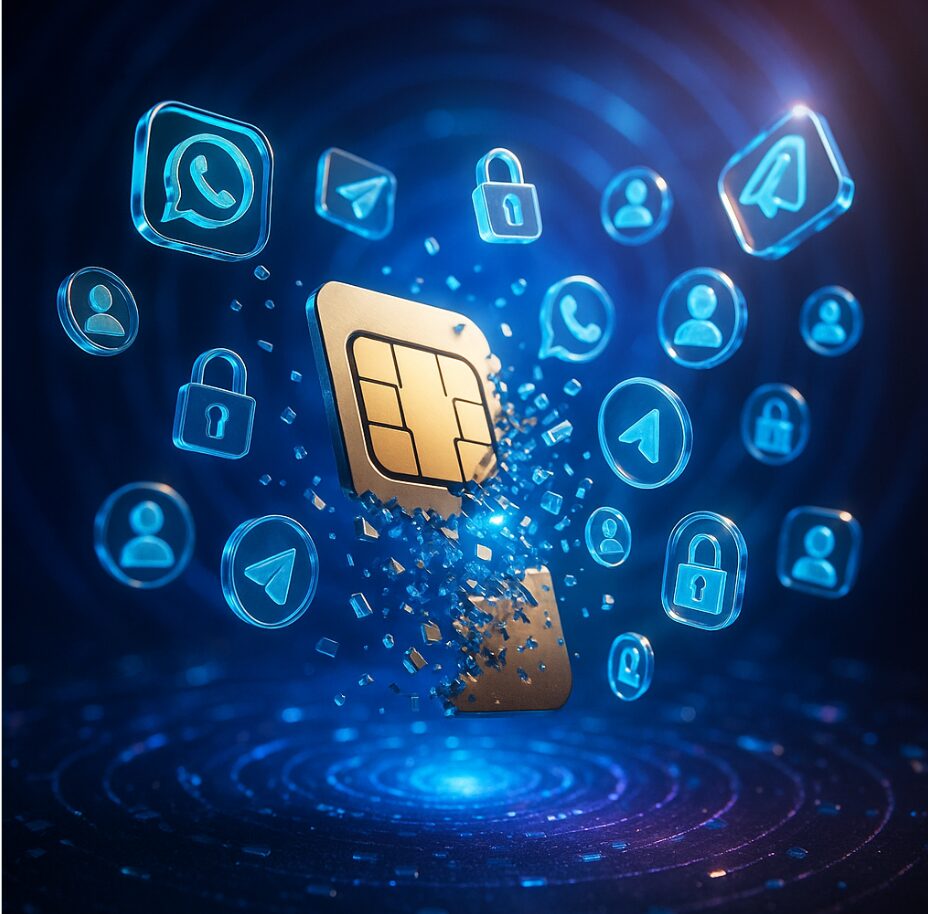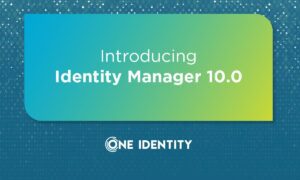The Identity We Knew Is Gone
Ten years ago, your phone number was more than just a string of digits; it was your identity.
It linked you to your job, your bank, and your friends. One SIM card. One device. One person. Everything about your digital presence was tied neatly to that single number in your pocket.
But today, that certainty is gone.
In a world where apps are global, work and personal lives blur, and privacy is harder than ever to protect, relying on one phone number for everything feels… outdated.
The problem is, most of us haven’t caught up yet.
We’re still treating phone numbers like fixed ID cards, even as everything else from usernames to payment methods has become fluid. The result? Identity bottlenecks, security risks, and increasing frustration with something as simple as trying to log in.
But a shift is happening quietly.
It’s not led by governments or telcos, it’s driven by users themselves. From creators to coders to casual users, people are beginning to reject the idea that one number should rule their digital world.
And at the heart of this shift? Temporary and virtual numbers tools that are redefining what it means to be reachable, verified, and secure online.
Enter the Era of Digital Fluidity
The rise of remote work, anonymous social platforms, and borderless services has pushed us into what some are calling the “fluid identity era.” It’s a world where people don’t just have one identity, they manage multiple, purpose-driven ones.
Think about it:
- A freelancer might need separate accounts for each client platform.
- A crypto trader wants to join dozens of Telegram groups without exposing personal details.
- A creator runs multiple TikTok profiles for different niches, each needing its own verified number.
In this world, your identity is no longer tied to one device or one SIM card. Instead, it’s shaped by how agile you are, how quickly you can spin up a new presence, log in securely, or stay untraceable when needed.
This is where virtual numbers step in.
Unlike traditional phone numbers, a virtual number doesn’t come with physical strings attached. It’s cloud-based, flexible, and perfect for temporary use, whether you’re receiving SMS codes, signing up for a new service, or running parallel accounts.
That flexibility is why platforms like quackr are seeing massive growth. Instead of relying on one number for everything, users are renting numbers on demand, sometimes for just a few minutes, other times for weeks or more, and using them to take control of their digital life.
The digital world isn’t one-size-fits-all anymore.
And neither is your number.
The Quiet Tools Behind the Movement
Every digital revolution has its unsung heroes.
For today’s users, that hero isn’t flashy. It’s not an app with a billion downloads or a startup with a billion-dollar valuation. It’s something far simpler: a temporary number.
The kind that gets you into Telegram when your main number is blocked.
The kind that lets you test a platform without committing your personal data.
The kind that shields you from spam, bans, or tracking.
And for millions of users worldwide, that quiet tool comes from platforms like quackr, a marketplace for on-demand, OTP-ready virtual numbers used for everything from WhatsApp verification to accessing geo-restricted services.
These tools don’t scream for attention.
They don’t trend.
They just work quietly, behind the scenes, making digital life smoother, safer, and more adaptable.
What’s more, users are becoming power users. Quackr’s own data shows that a growing percentage of users are renting more than one number per week, often for multiple platforms or business needs. From crypto founders to community managers, this silent adoption is turning temporary numbers into essential infrastructure.
Just like VPNs or password managers, virtual numbers are becoming a staple in the privacy toolkit only this time, it’s not about masking your IP. It’s about reclaiming control of your identity.
Why Quackr Isn’t Just Another SMS Tool
Let’s be honest, the phrase “receive SMS online” sounds generic. The internet is filled with free sites claiming to do just that.
But anyone who’s actually tried them knows the truth:
Most free number sites fail when you need them the most.
They’re flagged by major platforms.
They’re reused by thousands of people.
And they leave your login exposed to anyone refreshing the page.
That’s where Quackr breaks the mold.
Rather than chasing volume or clicks, Quackr built a model focused on trust and usability. Every number is tested for performance, rented exclusively (if private), and comes with support that actually responds. Whether you’re trying to verify WhatsApp, sign up for Telegram, or activate a geo-locked tool like Google VEO 3, Quackr’s infrastructure is built to just work.
It’s also one of the few platforms that offers true global reach, with numbers available across the US, UK, France, Canada, and dozens more. That global access lets users move between digital borders as needed without being locked out by outdated verification systems.
“Quackr isn’t trying to be flashy. It’s trying to be reliable. And in the age of shadow bans and platform lockouts, that’s exactly what users need.”
Whether you’re managing five accounts or trying to reclaim one, Quackr helps you stay connected without being exposed.
Try it for yourself: Rent a private virtual number now for instant, secure access.
Where It’s Headed
We’re on the edge of a major shift in how digital identity works.
Physical SIMs? On their way out.
One-number-for-life? No longer realistic.
Even “real names” are fading in favor of usernames, handles, and aliases.
As platforms like X (formerly Twitter), Discord, Telegram, and WhatsApp become identity hubs, we’re seeing a new kind of user emerge: one who wants flexibility over permanence.
Creators are building backup accounts.
Remote teams are managing international logins.
Ordinary users are protecting their privacy after yet another leak.
And tools like Quackr are quietly powering that shift, giving people the ability to rent virtual numbers, bypass old verification systems, and keep moving no matter what.
In fact, based on Quackr’s internal data:
- A growing 80% of users rent 2 or more numbers per week
- 60% of users say they’ve used Quackr to regain access to locked accounts
- Demand for geo-specific numbers (like US, UK, CA) is rising fastest
This isn’t just about convenience anymore; it’s about digital survival.
The next few years could see:
- eSIMs fully replacing traditional SIMs
- Verification shifting from numbers to biometric + token-based systems
- A growing black market for verified logins and phone-linked identities
But until that happens, virtual numbers remain one of the most powerful tools for staying verified, anonymous, and adaptable online.
And platforms like Quackr aren’t just helping people keep up, they’re giving them a head start.
Frequently Asked Questions
What is a virtual number, and how is it different from a regular SIM card?
A virtual number is a phone number that works without a physical SIM card. You can rent it online and use it to receive SMS online for verification or login purposes. Unlike your personal number, virtual numbers protect your privacy and are not tied to your identity.
Can I receive SMS online with a virtual number?
Yes, that’s exactly what virtual numbers are built for. With a platform like Quackr, you can rent a private virtual number and receive SMS online for services like WhatsApp, Telegram, Gmail, Discord, and more.
Why would someone need more than one phone number?
There are many reasons:
- Running multiple accounts on platforms like WhatsApp or Telegram
- Signing up for services without revealing your real number
- Recovering access to accounts that require phone verification
- Keeping business and personal communication separate
Virtual numbers give you this flexibility without needing extra SIM cards or devices.
Are temporary numbers safe to use?
Temporary numbers are safe as long as you choose a reliable provider. Free numbers can be reused or public, which makes them riskier. Private numbers from Quackr are sourced directly from carriers and never resold, offering far better protection.
What services can I verify using a Quackr virtual number?
You can verify:
- Messaging apps like WhatsApp, Telegram, and Signal
- Social media platforms like Facebook, Instagram, and X
- Email services like Gmail
- Gig apps, crypto exchanges, online marketplaces, and more
See the full list at quackr.io/rent-sms-numbers
Is this legal?
Yes, using virtual numbers is completely legal. They’re commonly used for privacy, account recovery, or testing. However, how you use the number matters. Using it for fraudulent or deceptive activity is against the law and platform rules.
Related: How to Use Temporary Phone Numbers for Secure SMS Verification: A Step-by-Step Guide



































